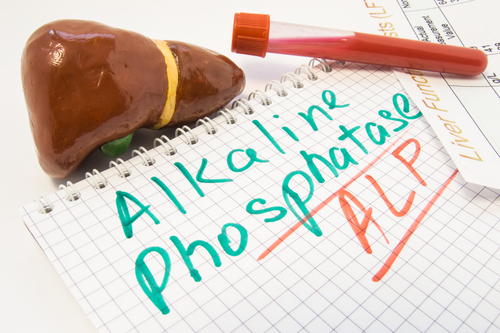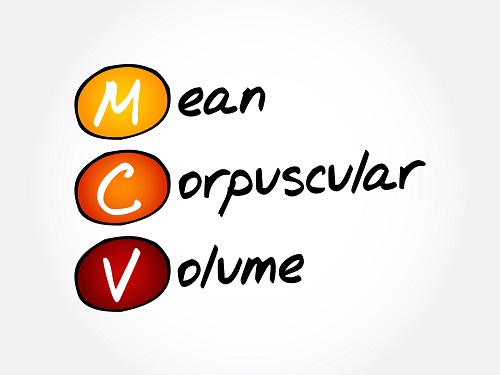Meaning of blood pressure
Blood pressure is taken using two measurements: systolic (measured when the heart beats, when blood pressure is at its highest) and diastolic (measured between heart beats, when blood pressure is at its lowest). Blood pressure is written with the systolic blood pressure first, followed by the diastolic blood pressure (e.g 120/80).
How are the blood pressure ranges classified?
The five blood pressure ranges as recognized by the American Heart Association are:
Normal
Blood pressure numbers of less than 120/80 mm Hg are considered within the normal range. If your results fall into this category, stick with heart-healthy habits like following a balanced diet and getting regular exercise.
Elevated
Elevated blood pressure is when readings consistently range from 120-129 systolic and less than 80 mm Hg diastolic. People with elevated blood pressure are likely to develop high blood pressure unless steps are taken to control the condition.
Hypertension Stage 1
Hypertension Stage 1 is when blood pressure consistently ranges from 130-139 systolic or 80-89 mm Hg diastolic. At this stage of high blood pressure, doctors are likely to prescribe lifestyle changes and may consider adding blood pressure medication based on your risk of diseases, such as heart attack or stroke.
Hypertension Stage 2
Hypertension Stage 2 is when blood pressure consistently ranges at 140/90 mm Hg or higher. At this stage of high blood pressure, doctors are likely to prescribe a combination of blood pressure medications and lifestyle changes.
Hypertensive crisis
This stage of high blood pressure requires medical attention. If your blood pressure readings suddenly exceed 180/120 mm Hg, wait five minutes and then test your blood pressure again. If your readings are still unusually high, contact your doctor immediately. You could be experiencing a hypertensive crisis.
If your blood pressure is higher than 180/120 mm Hg and you are experiencing signs of possible organ damage such as chest pain, shortness of breath, back pain, numbness/weakness, change in vision or difficulty speaking, do not wait to see if your pressure comes down on its own.
Causes of Hypertension
There are two types of high blood pressure.
Primary (essential) Hypertension
For most adults, there’s no identifiable cause of high blood pressure. This type of high blood pressure, called primary (essential) hypertension, tends to develop gradually over many years.
Secondary Hypertension
Some people have high blood pressure caused by an underlying condition. This type of high blood pressure, called secondary hypertension, tends to appear suddenly and cause higher blood pressure than does primary hypertension. Various conditions and medications can lead to secondary hypertension, including:
- Obstructive sleep apnea, a condition in which breathing stops involuntarily for brief periods of time during sleep
- Kidney disease, adrenal gland tumors (tumor of the gland present on top of kidneys)
- Thyroid problems
- Certain defects you’re born with (congenital) in blood vessels
- Certain medications, such as birth control pills, cold remedies, decongestants, over-the-counter pain relievers and some prescription drugs
- Illegal drugs, such as cocaine
Causes of low blood pressure
Low blood pressure can occur with:
- Prolonged bed rest.
- Pregnancy. During the first 24 weeks of pregnancy, it’s common for blood pressure to drop.
- Decreases in blood volume. A decrease in blood volume can also cause blood pressure to drop. A significant loss of blood from major trauma, dehydration or severe internal bleeding reduces blood volume, leading to a severe drop in blood pressure.
- Certain medications. A number of drugs can cause low blood pressure, including diuretics and other drugs that treat hypertension; heart medications; drugs for Parkinson’s disease; antidepressants; erectile dysfunction drugs.
- Heart problems. Among the heart conditions that can lead to low blood pressure are an abnormally low heart rate (bradycardia), problems with heart valves, heart attack and heart failure. Your heart may not be able to circulate enough blood to meet your body’s needs.
- Endocrine problems. Such problems include complications with hormone-producing glands in the body’s endocrine systems; specifically, an under-active thyroid (hypothyroidism), parathyroid disease and, in some cases, diabetes.
- Severe infection (septic shock). Septic shock can occur when bacteria leave the original site of an infection (most often in the lungs, abdomen or urinary tract) and enter the bloodstream. The bacteria then produce toxins that affect blood vessels, leading to a profound and life-threatening decline in blood pressure.
- Allergic reaction (anaphylaxis). Anaphylactic shock is a sometimes-fatal allergic reaction that can occur in people who are highly sensitive to drugs such as penicillin, to certain foods such as peanuts or to bee or wasp stings. This type of shock is characterized by breathing problems, hives, itching, a swollen throat and a sudden, dramatic fall in blood pressure.
- Neurally mediated hypotension. This happens when blood pressure drops after standing for long periods, leading to symptoms such as dizziness, nausea and fainting. This condition primarily affects young people and occurs because of a miscommunication between the heart and the brain.
- Nutritional deficiencies. A lack of the essential vitamins B-12 and folic acid can cause anemia, which in turn can lead to low blood pressure.
Risks associated with a high or low blood pressure
The excessive pressure on your artery walls caused by high blood pressure can damage your blood vessels as well as your organs. The higher your blood pressure and the longer it goes uncontrolled, the greater the damage.
Uncontrolled high blood pressure can lead to complications including:
- Heart attack or stroke. High blood pressure can cause hardening and thickening of the arteries (atherosclerosis), which can lead to a heart attack, stroke or other complications.
- Aneurysm. Increased blood pressure can cause your blood vessels to weaken and bulge, forming an aneurysm. If an aneurysm ruptures, it can be life-threatening.
- Heart failure. To pump blood against the higher pressure in your vessels, the heart has to work harder. This causes the walls of the heart’s pumping chamber to thicken (called left ventricular hypertrophy). Eventually, the thickened muscle may have a hard time pumping enough blood to meet your body’s needs, which can lead to heart failure.
- Weakened and narrowed blood vessels in your kidneys. This can prevent these organs from functioning normally.
- Thickened, narrowed or torn blood vessels in the eyes. This can result in vision loss.
- Metabolic syndrome. This syndrome is a group of disorders of your body’s metabolism, including increased waist size, high triglycerides, decreased high-density lipoprotein (HDL) cholesterol (the “good” cholesterol), high blood pressure and high insulin levels. These conditions make you more likely to develop diabetes, heart disease and stroke.
- Trouble with memory or understanding. Uncontrolled high blood pressure may also affect your ability to think, remember and learn. Trouble with memory or understanding concepts is more common in people with high blood pressure.
- Dementia. Narrowed or blocked arteries can limit blood flow to the brain, leading to a certain type of dementia (vascular dementia). A stroke that interrupts blood flow to the brain also can cause vascular dementia. A very high blood pressure or rapidly rising blood pressure can cause common symptoms like:
- Headaches
- Vision problems
- Nose bleeds
- Trouble breathing
- Fits
- Black-outs On the other hand, a very low BP can cause symptoms like: Feeling dizzy, light headed or fainting
- Blurred vision
- A rapid or irregular heartbeat
- Feeling nauseous
- Confusion If low blood pressure causes lack of blood flow to the organs of the body, then those organs will start to fail. This may result in stroke, heart attack, kidney failure, and bowel ischemia (decreased blood supply to the small and large intestine).
Shock and death are the end result of prolonged low blood pressure. But usually, low blood pressure with no symptoms requires little intervention.
If low blood pressure is associated with chest pain, shortness of breath, or occurs because of active bleeding, treatment will occur at the same time as the diagnostic evaluation. These combinations may be truly life-threatening, and the healthcare provider may need to transfer the patient to an emergency department for further care. A patient with low blood pressure who is symptomatic may be considered to be in shock (a situation where organs can’t function properly because of lack of blood supply).
What lifestyle changes can I adapt to have a normal blood pressure?
The following actions can help normalize blood pressure:
- Stopping smoking. Smoking harms the arteries and can cause high blood pressure.
- Eating more fruits, vegetables, whole grains, and lean protein. Reduce or eliminate added sugars and processed foods.
- Getting regular exercise. The American Heart Association recommends moderate-intensity exertion, such as walking at a quick pace. A person should do this for 30 minutes per day, at least five days a week.
- Limiting alcohol consumption. Women should drink no more than one drink per day and men no more than two drinks per day. Drinking more than this can raise blood pressure.
- Finding healthy ways to lower stress. Meditation, deep breathing exercises, guided imagery, and other techniques to manage stress can help to avoid spikes in blood pressure.
- Consuming less sodium. Excessively salty foods can cause sharp increases in blood pressure.
- Reducing the intake of caffeine. Caffeinated drinks can cause temporary spikes in blood pressure, and may make anxiety worse. For people with a very low BP, eat a diet higher in salt.
- Drink lots of nonalcoholic fluids.
- Limit alcoholic beverages.
- Drink more fluids during hot weather and while sick with a viral illness, such as a cold or the flu.
- Have your doctor evaluate your prescription and over-the-counter medications to see if any of them are causing your symptoms.
- Get regular exercise to promote blood flow.
- Be careful when rising from lying down or sitting. To help improve circulation, pump your feet and ankles a few times before standing up. Then proceed slowly. When getting out of bed, sit upright on the edge of the bed for a few minutes before standing.
- Elevate the head of your bed at night by placing bricks or blocks under the head of the bed.
- Avoid heavy lifting.
- Avoid straining while on the toilet.
- Avoid standing still in place for long periods of time.
- Avoid prolonged exposure to hot water, such as hot showers and spas. If you get dizzy, sit down. It may be helpful to keep a chair or stool in the shower in case you need to sit; to help prevent injury, use a non-slip chair or stool designed for use in showers and bathtubs.
- To avoid problems with low blood pressure and lessen episodes of dizziness after meals, try eating smaller, more frequent meals. Cut back on carbohydrates. Rest after eating. Avoid taking drugs to lower blood pressure before meals.
- If needed, use elastic support (compression) stockings that cover the calf and thigh. These may help restrict blood flow to the legs, thus keeping more blood in the upper body.






